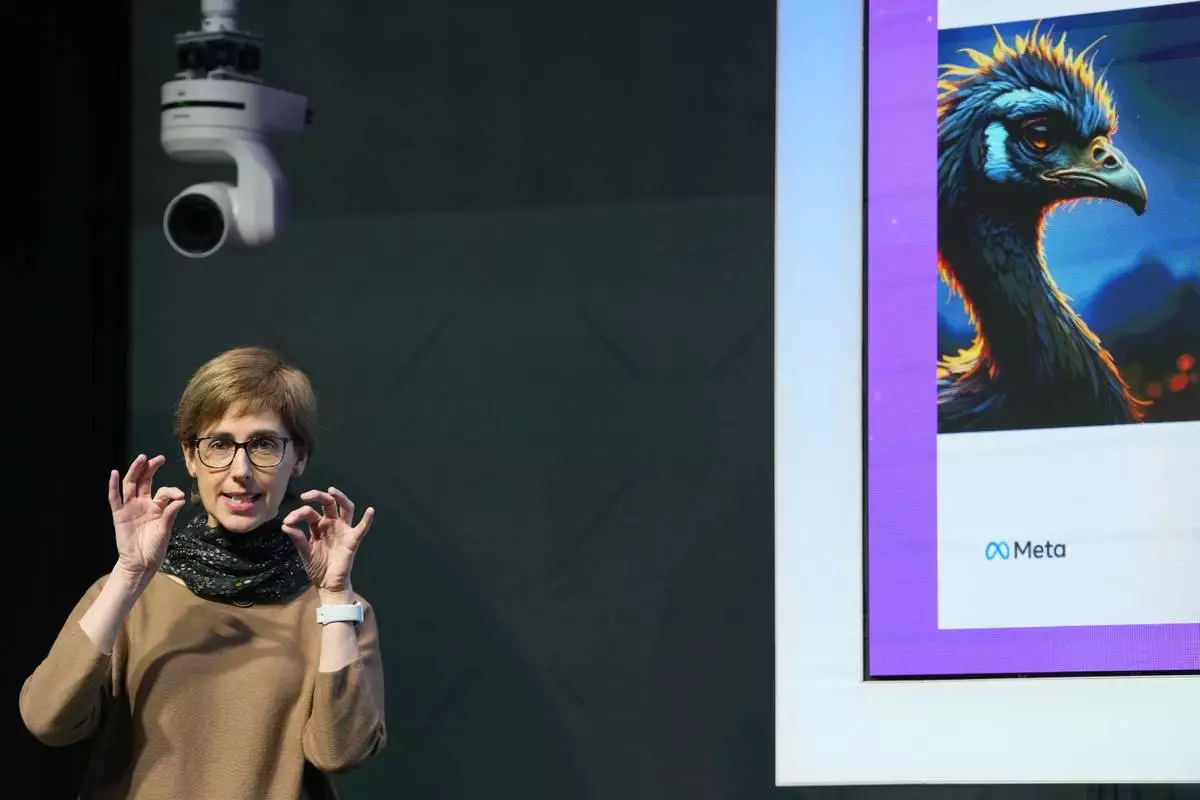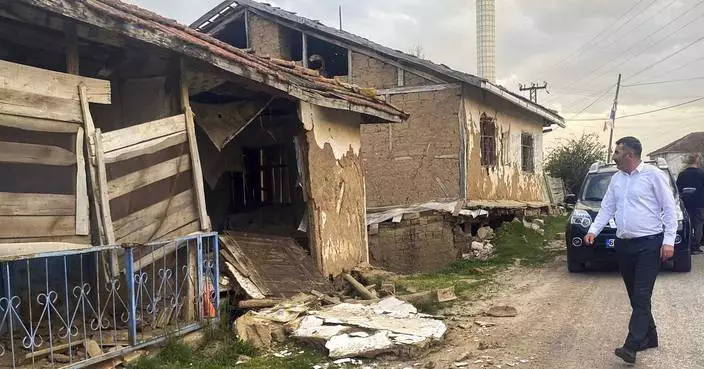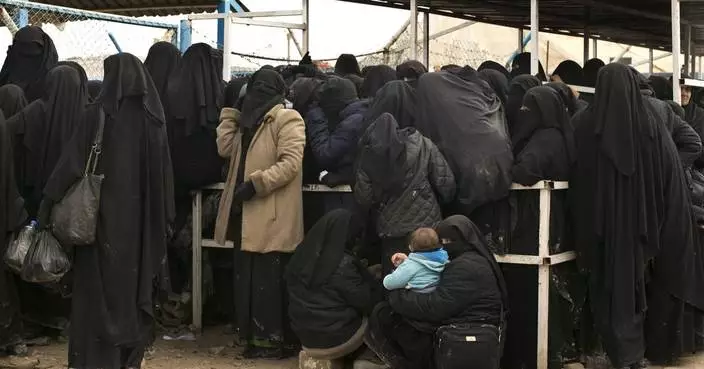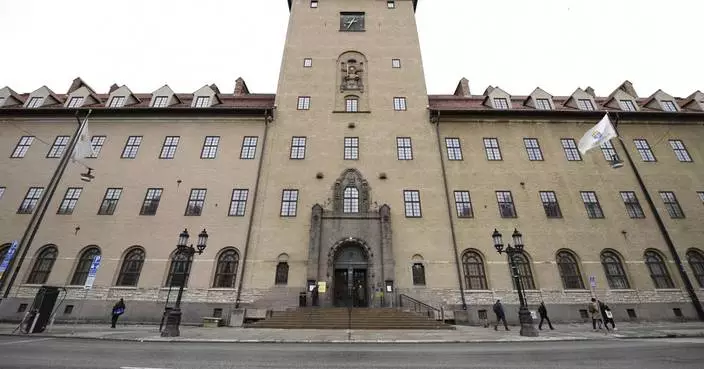Turkish jets bombed the Kurdish-controlled city of Afrin in northern Syria on Saturday, as President Recep Tayyip Erdogan promised to expand Turkey's military border operations against a Kurdish group that has been the U.S.'s key Syria ally in the war on the Islamic State group.
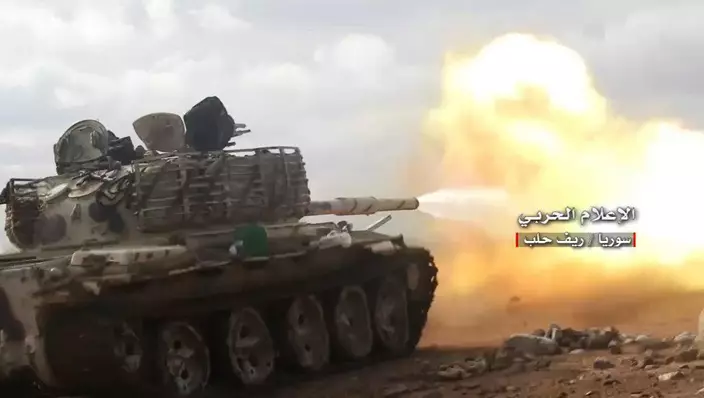
This photo provided on Saturday, Jan. 20, 2018, by the government-controlled Syrian Central Military Media, shows a Syrian government forces tank firing during a battle against the Syrian opposition fighters, in the southern Aleppo countryside, Syria. Syrian state TV says government forces have retaken a key air base in northwest Syria that was lost to rebels in 2015. The state broadcaster says Syrian troops fought their way into the strategic Abu Zuhour air base on Saturday, in Idlib province. (Syrian Central Military Media, via AP)
The raids came on the heels of a week of sharp threats by the Turkish government, promising to clear the Kurdish People's Protection Units, or YPG, from Afrin and its surrounding countryside, also called Afrin. Turkey's military is calling the campaign Operation Olive Branch.
Turkey says the YPG — a group it considers a terrorist organization — is an extension of an outlawed Kurdish rebel group that it is fighting inside its own borders, and it has found common cause with Syrian opposition groups who view the YPG as a counter-revolutionary force in Syria's multi-sided civil war.
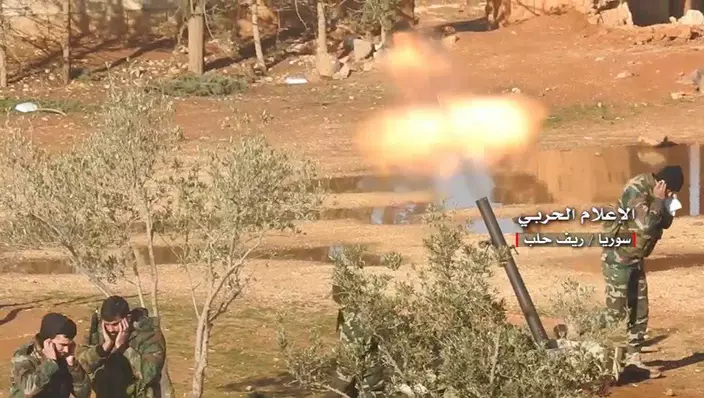
This photo provided on Saturday, Jan. 20, 2018, by the government-controlled Syrian Central Military Media, shows Syrian government forces firing mortars during a battle against the Syrian opposition fighters, in the southern Aleppo countryside, Syria. Syrian state TV says government forces have retaken a key air base in northwest Syria that was lost to rebels in 2015. The state broadcaster says Syrian troops fought their way into the strategic Abu Zuhour air base on Saturday, in Idlib province. (Syrian Central Military Media, via AP)
Turkish Prime Minister Binali Yildirim said a ground offensive could begin Sunday, but the state run Anadolu News Agency reported that Syrian forces backed by Ankara had already penetrated the Kurdish enclave. They crossed over from Turkey but were turned back by the YPG, according to Rojhat Roj, a Kurdish spokesman.
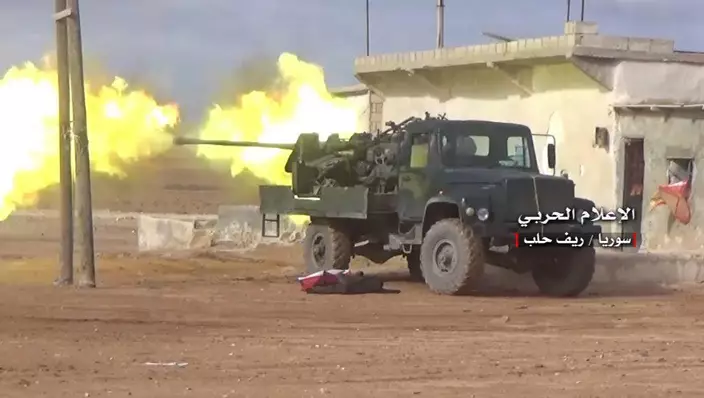
This photo provided on Saturday, Jan. 20, 2018, by the government-controlled Syrian Central Military Media, shows Syrian government forces firing their weapon during a battle against the Syrian opposition fighters, in the southern Aleppo countryside, Syria. Syrian state TV says government forces have retaken a key air base in northwest Syria that was lost to rebels in 2015. The state broadcaster says Syrian troops fought their way into the strategic Abu Zuhour air base on Saturday, in Idlib province. (Syrian Central Military Media, via AP)
Associated Press journalists at the Turkish border saw jets bombing positions in the direction of Afrin, as a convoy of armed pickup trucks and buses believed to be carrying Syrian opposition fighters traveled along the border. Video from Turkey this week showed the military moving tanks to the frontier.
Roads out of the Afrin were closed and the YPG were not allowing anyone to leave the city, but morale was high, according to a resident who was reached by phone.
"So far the People's Protection Units have not called on the people to mobilize," said Ramzi Hamidi. Turkey, he said, "will learn a lesson they have not learned before."
Ten civilians were wounded in the airstrikes, three seriously, according to Roj.
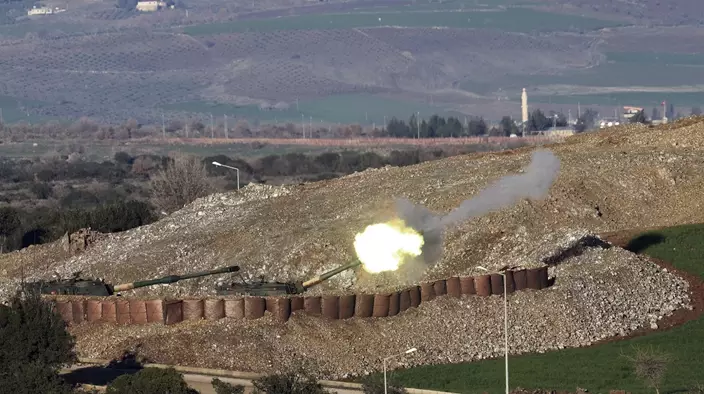
In this photo taken Friday, Jan. 19, 2018, Turkish artillery fire toward Syrian Kurdish positions from the Turkish side of the border, in Hatay, southern Turkey. Turkey's President Recep Tayyip Erdogan repeated Saturday that a Turkish offensive against the Syrian Kurdish-controlled enclave of Afrin was "de facto" underway and said it would be followed by an operation against another Kurdish-held territory.(Nuri Pir/IHA via AP)
Turkey has prepared around 10,000 Syrian fighters to storm Afrin, according Rami Abudrrahman, director of the Syrian Observatory for Human Rights monitoring group. A rebel commander speaking to the AP by phone from north Syria said there were thousands of fighters positioned in Azaz, at the frontier with the Kurdish enclave, awaiting orders. Another commander said hundreds more were stationed in Atmeh, south of Afrin. The officials spoke on the condition of anonymity because they were not authorized to speak to the media.
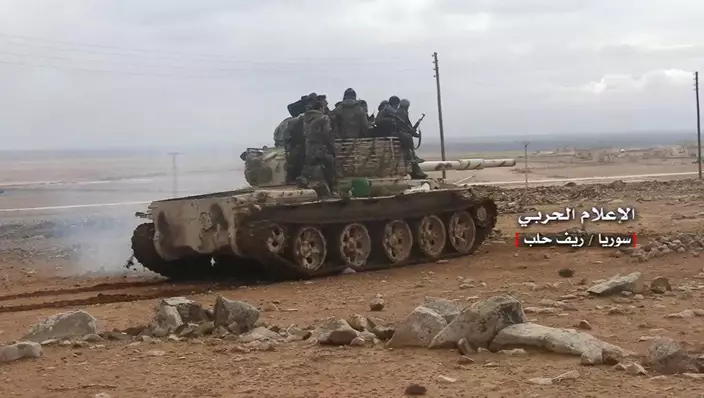
This photo provided on Saturday, Jan. 20, 2018, by the government-controlled Syrian Central Military Media, shows Syrian government forces standing on their tank, in the southern Aleppo countryside, Syria. Syrian state TV says government forces have retaken a key air base in northwest Syria that was lost to rebels in 2015. The state broadcaster says Syrian troops fought their way into the strategic Abu Zuhour air base on Saturday, in Idlib province. (Syrian Central Military Media, via AP)
The Russian Defense Ministry said, meanwhile, that it was pulling back troops that had been deployed near Afrin, two days after Turkey's military and intelligence briefs travelled to Moscow to discuss the planned operation. It said the group of observers was being relocated to another area. It was not immediately clear how many troops were affected by the move.
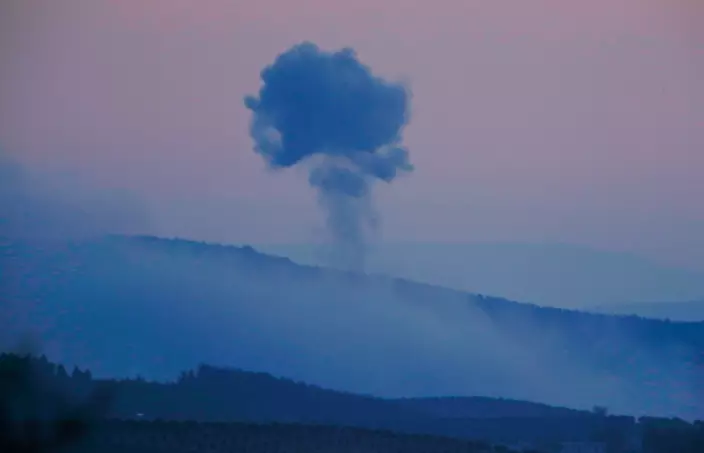
Plumes of smoke rise on the air from inside Syria, as seen from the outskirts of the border town of Kilis, Turkey, Saturday, Jan. 20, 2018. Turkish jets have begun an aerial offensive, codenamed operation "Olive Branch", against the Syrian Kurdish-held enclave of Afrin, in northwest Syria . A military statement says the operation launched Saturday aims to protect Turkey's borders, "neutralize" Syrian Kurdish fighters in the enclave and to save the local population from their "pressure and oppression." (AP Photo/Lefteris Pitarakis)
The YPG is the driving force behind a coalition of north Syrian forces allied with the U.S. to battle the Islamic State group. With U.S. support, including around 2,000 embedded forces, the coalition now controls close to a quarter of Syrian territory, concentrated mostly to the north and east of the Euphrates River.
Turkish leaders were infuriated by an announcement by the U.S. military six days ago that it was going to create a 30,000-strong border force with the Kurdish fighters to secure northern Syria. Days later, Secretary of State Rex Tillerson announced that the U.S. would maintain a military presence with the Kurds for the foreseeable future.
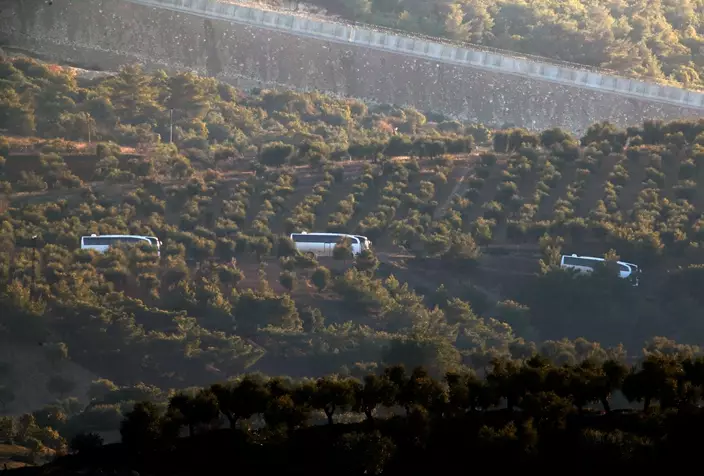
A convoy of buses believed to be carrying Syrian opposition fighters, travels along the border with Syrias as see from the outskirts of the border town of Kilis, Turkey, Saturday, Jan. 20, 2018. Turkish jets have begun an aerial offensive, codenamed operation "Olive Branch", against the Syrian Kurdish-held enclave of Afrin, in northwest Syria . A military statement says the operation launched Saturday aims to protect Turkey's borders, "neutralize" Syrian Kurdish fighters in the enclave and to save the local population from their "pressure and oppression." (AP Photo/Lefteris Pitarakis)
Tillerson spoke by phone with Russian Foreign Minister Sergey Lavrov and Turkish Foreign Minister Mevlut Cavusoglu, the U.S. State Department said. No details about the calls were immediately available, but the State Department has previously said it's urging against escalation.
Speaking in the city of Kutahya in western Turkey, Erdogan announced an expansion to Turkish operations in Syria, promising to move on the Kurdish-controlled town of Manbij and its surrounding countryside after completing operations in Afrin. The operation would force out the Kurdish militia from all positions west of the Euphrates River.
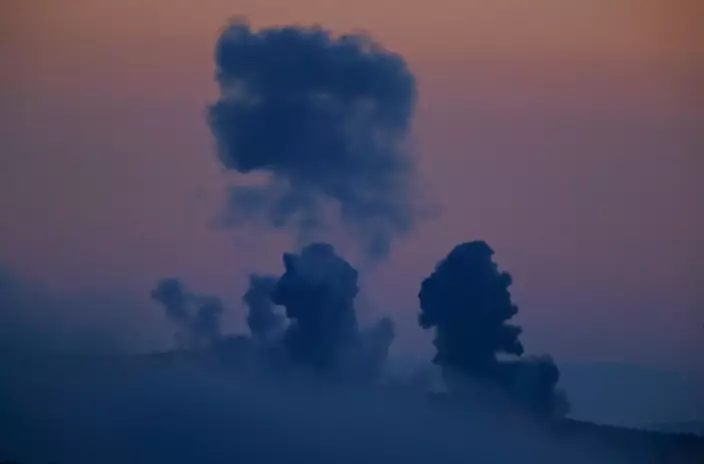
Plumes of smoke rise on the air from inside Syria, as seen from the outskirts of the border town of Kilis, Turkey, Saturday, Jan. 20, 2018. Turkish jets have begun an aerial offensive, codenamed operation "Olive Branch", against the Syrian Kurdish-held enclave of Afrin, in northwest Syria . A military statement says the operation launched Saturday aims to protect Turkey's borders, "neutralize" Syrian Kurdish fighters in the enclave and to save the local population from their "pressure and oppression." (AP Photo/Lefteris Pitarakis)
In 2016, Turkey trained and equipped opposition forces to drive Kurdish fighters out of parts of north Syria, driving a wedge between two enclaves along the Turkish frontier. Turkish ground forces, including tanks and artillery, crossed into Syria with the fighters to establish a zone flanked by Afrin and Manbij that now serves as hub for Turkish operations inside the war-torn country.
Turkish Prime Minister Binali Yildirim said the strikes on Afrin marked the start of a campaign to "eliminate the PYD and PKK and Daesh elements in Afrin," referring to the Kurdish Democratic Union Party and the Kurdistan Worker's Party respectively, and using an Arabic acronym for the Islamic State group.
The PYD, PKK, and YPG all look to the Kurdish Marxist-nationalist leader Abdullah Ocalan as their guide. Ocalan is imprisoned by Turkey for waging a separatist movement in the eastern part of the country. The IS group does not have a presence in Afrin.
The air strikes were accompanied by waves of artillery strikes on the Afrin region. Syria's Foreign Ministry promptly condemned the Turkish operation.
Turkish Foreign Minister Mevlut Cavusoglu discussed the operation with Tillerson by phone on Sunday after the U.S. diplomat requested a conversation, Turkish officials said. They did not provide further details.
Any ground operation would entail considerable military and political risk for Ankara. Russia was keeping military observers in Afrin and lately firmed up its ties with the YPG, while Syria's government in Damascus said it would shoot down any Turkish jets on raids in the country. The YPG is estimated to have between 8,000 and 10,000 fighters in Afrin. Turkey could also face blowback from the Kurdish insurgency within its own borders.
A ground offensive or continued shelling would exacerbate the poor humanitarian situation in Afrin, which is now home to at least 800,000 civilians, including many who arrived fleeing the fighting in other parts of Syria.
Also on Saturday, Syrian government forces and supporting militias retook a key air base in northwest Syria lost to rebels in 2015.
Syria's state broadcaster said Syrian troops fought their way into the strategic Abu Zuhour air base in Idlib province.
It was a coup for the government and allied militias who advanced swiftly to take the base in what was considered a stronghold for rebels and al-Qaida insurgents.
But the advance, which began in earnest in late December, has displaced more than 200,000 civilians, according to the U.N., exacerbating an already dire humanitarian situation in the north of the country.





